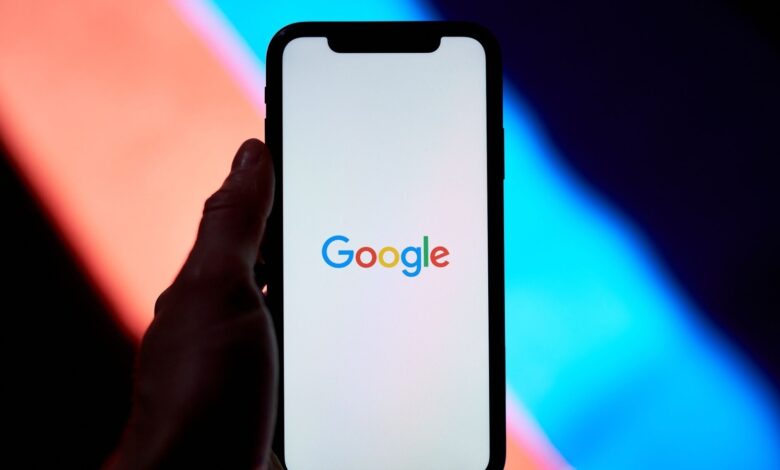A judge called Google a monopoly, but AI could bring faster change to internet search

A federal judge has slammed Google as a ruthless monopoly that wants to stifle competition. But how do you create alternatives to a search engine that has become synonymous with exploring the internet?
It’s a process that could take years to play out as Google appeals a landmark decision handed down by U.S. District Court Judge Amit Mehta on Monday.
And with such a time frame approaching, the effects of technological change may render this exercise pointless.
The rise of artificial intelligence could reshape the landscape faster and more profoundly than any judge ever could. The way consumers navigate the internet is likely to be influenced by advances in AI products — such as OpenAI’s ChatGPT And Google’s Gemini – before a case of nearly 4 years old The case brought by the US Department of Justice has finally been resolved.
The challenge for Google
Still, Mehta’s 277-page ruling on Monday presents challenges to Google that company founders Larry Page and Sergey Brin probably did not envision when they set out to revolutionize internet search while attending Stanford University as graduate students. They eventually dropped out to found a Silicon Valley company in 1998, adopting the motto “Don’t be evil” as their motto, which also served as their corporate conscience.
Page and Brin, who remain the controlling shareholders of Google’s parent company Alphabet Inc., also their cute startup as a champion of technology that would be much better than the products of Microsoft, the dominant giant in the industry at the time. Microsoft’s dominance of personal computer software and anti-competitive tactics in the 1990s prompting another Justice Department case This made it difficult for Microsoft and made it easier for Google to build a lead in search and then expand into maps, cloud computing, email (Gmail), web browsers (Chrome), and video (YouTube).
Now, the script has been reversed, with Google facing potential legal constraints, while a resurgent Microsoft has made early progress in AI with a big help from its investment in OpenAI. In one of the most dramatic scenarios that most experts say is unlikely, Google could be forced to break up its business in a similar way to how AT&T—once known as “Ma Bell”—spun off its telephone subsidiaries into separate “Baby Bells” more than 40 years ago.
Google CEO Sundar Pichai, who took over the company’s leadership from Page in 2015, will have to minimize the distractions caused by the upcoming legal battle and stay focused on the industry-wide shift toward AI technology, which is expected to be as revolutionary as the change in mobile computing when Apple introduced the iPhone in 2007.
The debate over how Google should be reformed is set to begin on September 6 with a hearing scheduled in Washington, DC, before Mehta, who also presided over the 10-week trial last year that led to his antitrust ruling.
Read more: AI-powered Textbooks for Students? This Country Is Taking a Big Step to Improve Learning
AI-powered alternatives
Google will also pursue an appeal, based on its longstanding argument that it has done nothing wrong other than build and maintain a search engine that is far superior to any other for more than 20 years. The Mountain View, California, company also maintains that competition is just a few clicks away, with consumers still free to switch to other options, such as Microsoft’s Bing, DuckDuckGo and, more recently, AI-powered alternatives like Perplexity and ChatGPT.
While Mehta praised the quality of Google’s search engine in his ruling and acknowledged that the company initially became the preferred choice for people in its early days, he concluded that the company had resorted to unfair tactics to maintain its lead over the past decade. Mehta said Google did this primarily by negotiating lucrative deals to cement its position as the default search engine on iPhones and many other devices, including PCs.
Those deals, which totaled $26 billion in 2021 alone, meant that Google would automatically process search requests unless consumers took the time to manually go into their settings and choose a different option—something few did. The default option then helped Google glean valuable insights that allowed the company to improve its search engine in ways that rivals couldn’t because they didn’t have the same data.
Read more: Microsoft fires back at Delta after airline says tech glitch last month cost it $500 million
Mehta pointed out in his ruling that default requests accounted for 60% of Google’s search traffic in 2017, and that volume in turn creates more opportunities to sell ads, which generate the bulk of the parent company’s $307 billion in annual revenue.
Mehta’s focus on default search deals in his ruling makes him more likely to decide to ban them after the next phase of the trial is complete, antitrust experts say. That could have implications for companies other than Google, especially Apple, which is pocketing about $20 billion a year from a deal that is currently scheduled to continue through 2026, with options to extend the alliance through 2028.
Apple did not respond to a request for comment on Mehta’s decision, but company executives have described the decision to make Google the default search engine on iPhones and other products as a convenience for customers — most of whom prefer to use Google.
But an injunction that would prevent Apple from making default search deals with Google could do more than just suck up revenue. It could also require Apple to spend heavily to develop its own search technology—an effort that Google estimated would cost more than $30 billion in a 2020 analysis that Mehta cited in his ruling. After that, according to Google’s analysis, Apple would have to spend an additional $7 billion a year to maintain its own search engine.




